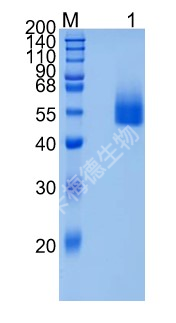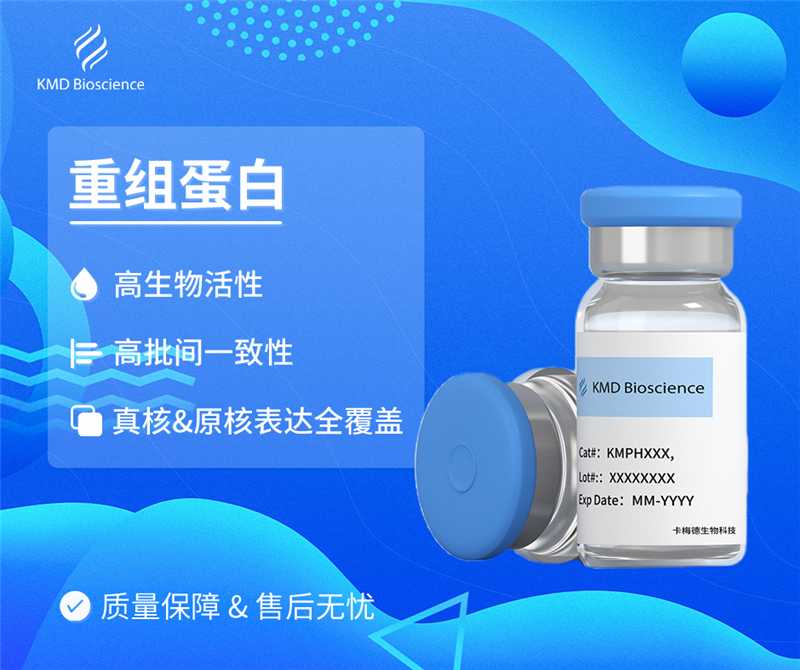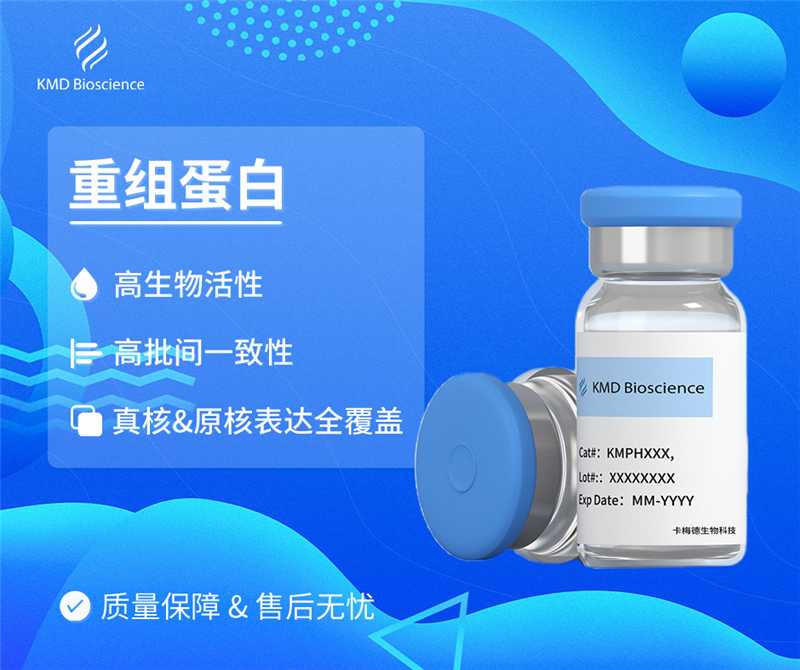| Catalog Number | KRP115 |
| Alias | T细胞表面糖蛋白CD4, T-cell surface glycoprotein CD4 , T-cell differentiation antigen L3T4, T-cell surface antigen T4/Leu-3, CD antigen CD4, |
| Size | 20ug, 50ug, 100ug, 200ug, 1mg |
| Product Description | Mouse Cd4(27-394 aa) |
| Molecular Name | Cd4 |
| Product Introduction | T细胞表面糖蛋白CD4T细胞分化抗原,参与免疫反应。。 |
| Molecular Weight | 50-60 kDa |
| Expression System | HEK293F Cells |
| Species | Mouse |
| Concentration | 联系销售经理获得最新批次的浓度 |
| Purity | ≥95% |
| SDS-PAGE |  |
| Purification | Affinity Purification |
| Uniprot ID | P06332 |
| Storage Condition | Store the product under sterile conditions after opening at -80℃ for 12 months. Store the lyophilized powder at -20℃. Avoid repeated freeze-thaw cycles. |
| Formulation | Supplied in PBS |
| Shipping Condition | This product is shipped on ice packs or dry ice. |
| Background | Integral membrane glycoprotein that plays an essential role in the immune response and serves multiple functions in responses against both external and internal offenses. In T-cells, functions primarily as a coreceptor for MHC class II molecule:peptide complex. The antigens presented by class II peptides are derived from extracellular proteins while class I peptides are derived from cytosolic proteins. Interacts simultaneously with the T-cell receptor (TCR) and the MHC class II presented by antigen presenting cells (APCs). In turn, recruits the Src kinase LCK to the vicinity of the TCR-CD3 complex. LCK then initiates different intracellular signaling pathways by phosphorylating various substrates ultimately leading to lymphokine production, motility, adhesion and activation of T-helper cells. In other cells such as macrophages or NK cells, plays a role in differentiation/activation, cytokine expression and cell migration in a TCR/LCK-independent pathway. Participates in the development of T-helper cells in the thymus and triggers the differentiation of monocytes into functional mature macrophages. {ECO:0000250|UniProtKB:P01730, ECO:0000269|PubMed:16709847, ECO:0000269|PubMed:1832488, ECO:0000269|PubMed:2784195, ECO:0000269|PubMed:3262426}. |
| Endotoxin | < 0.1 EU per ug |
| Biological Activity | Measured by the ability of the immobilized protein to support the adhesion of NIH‑3T3 mouse embryonic fibroblast cells. The ED50 forthis effect is 2-12 μg/mL |
| Product Declaration | 该产品仅供科研使用,不可直接用于人体或注射。 |












 0
0
